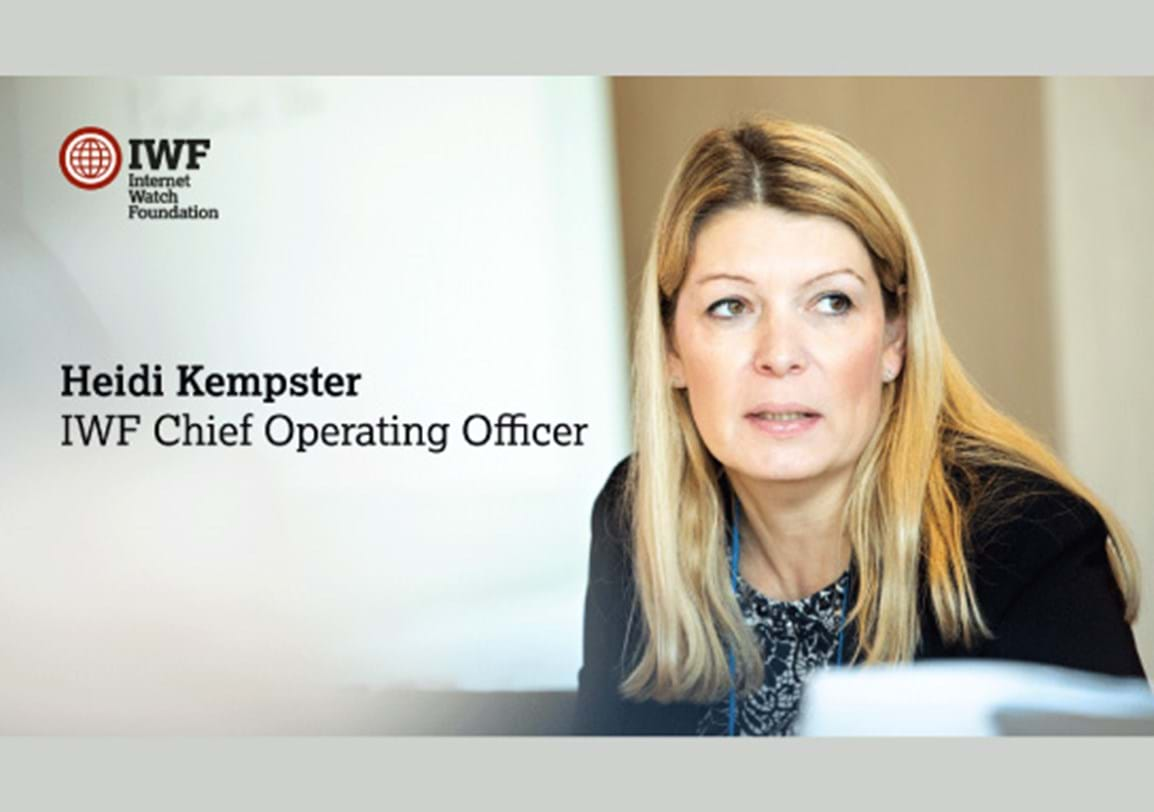
How online predators use privacy apps. New podcast episode from the IWF
In Conversation with Tegan Insoll, Head of Research at Suojellaan Lapsia, and Dan Sexton, Chief Technology Officer at the IWF

Published: Wed 15 May 2019
Of course, anxiety and depression are age old, but nowadays, online exploitation can be their newest trigger. Day in, day out, we hear horror stories of fellow human beings – all too often children – finding their peace of mind ruined by an internet which should be a place of joyful exploration, freedom, and discovery.
And while all exploitation inflicts harm, is there anything more destructive than that involving the rape, sexual abuse, or sexual torture of a trusting and vulnerable child? It’s a shocking quirk of progress that child sexual abuse is facilitated by the internet - and it’s the job of the IWF’s small team of analysts to try to stop it, sparing abused children the mental anguish of having images of their suffering shared again and again.
But who guards the guardians?
In a word, IWF! It’s a real privilege that a key part of my job involves the psychological wellbeing of these extraordinary people. Their mental health is our No. 1 priority. They spend their weekdays trawling the web for sickening videos and images, getting them removed, and helping to disrupt criminals and save children in the process. I’m in awe of how they fight on, never swerving, despite witnessing more distressing images in a day than most people will see in their lifetime.
It means that while our analysts do this amazing job for young victims worldwide, the IWF is there to help them cope. Last year alone, they passed more than 105,000 instances of child sexual abuse imagery to the authorities or tech companies for removal, saving children from having images of their nightmare shared again and again.
No child should be sexually abused or tortured and nobody should have to watch it being done. That’s why the role of an IWF analyst has been called ‘the worst job in the world’. It’s hard to imagine how much our analysts are processing while they sit on their tea-breaks, quietly musing.
And that’s why the IWF offers such a support network. Walk into the IWF office, and you’ll find it’s a bright, colourful space with a chill-out room, table tennis table, and probably the crumbs of an office Bake Off competition still in the kitchen. The décor is designed to relieve stress and give a clean airiness that allows the analysts to unwind. We’ve even got a lilypond by the office where they can walk and feed the ducks to try to clear their minds.
Because of the intensity of the work, IWF analysts do a seven-hour day with compulsory breaks for 10 minutes in every hour if they are doing certain tasks. We believe a work-life balance is crucial and we hire people with a good support network in their life, whether it be with parents, a partner, siblings, or friends - and we believe in nurturing these relationships.
Who analyses the analysts?
Mental Health Awareness Week is a good reminder that counselling can be a fantastic help to people in all walks of life. We certainly believe in it for our team. Some aspects of psychological wellbeing need more than the helping hand of a friend or well-wisher and there is huge benefit from skilled talking therapies. As part of their welfare package, our analysts receive monthly mandatory counselling sessions and an annual psychological assessment. We want them to be able to leave their work at the door; we don’t want them compartmentalising stuff, or bottling things up, or feeling they have to share distress or feelings about work at home. The counselling sessions help them enjoy the good mental health they need to continue their fight to help those children who cannot help themselves.
For our analysts, nothing lifts their spirits more than hearing from our law enforcement partners that intelligence we provided has led to a child, who is now safe. That’s when the hairs stand up on the back of your neck and the whole team rejoices in the proof that what we are doing makes a difference.

In Conversation with Tegan Insoll, Head of Research at Suojellaan Lapsia, and Dan Sexton, Chief Technology Officer at the IWF